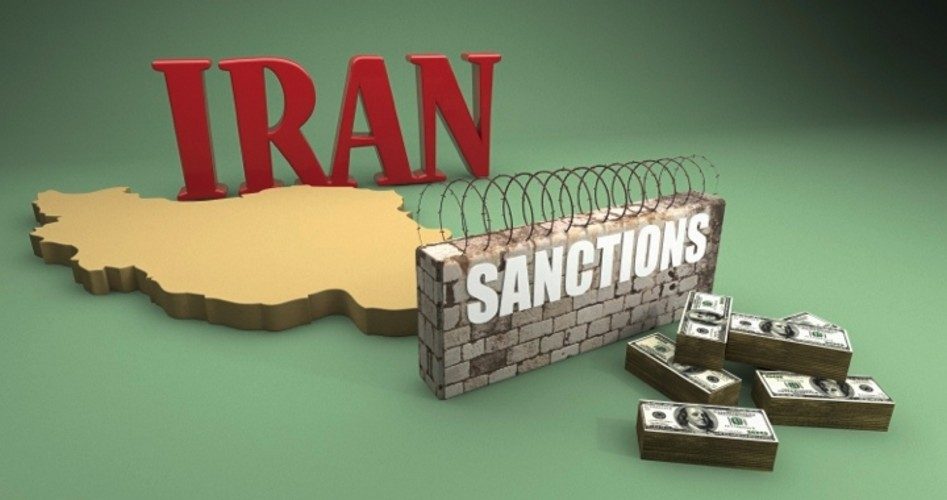
As Secretary of State John Kerry concluded a meeting in Geneva on January 14 with Iranian Minister of Foreign Affairs Mohammad Javad Zarif to discuss Iran’s nuclear program, voices rose in Congress to pass legislation that would impose new economic sanctions on Iran.
The preference of the Obama administration to obtain an agreement with Iran via the diplomatic route is evidently not welcome by everyone in Congress. Senators Mark Kirk (R-Ill.) and Robert Menendez (D-N.J.), for example, plan to introduce a bill that would impose several rounds of increased economic sanctions on Iran beginning June 30 if Iran fails to approve any negotiated agreement or abide by the terms of such an agreement.
Senator Bob Corker (R-Tenn.), chairman of the Senate Foreign Relations Committee, told Bloomberg on January 13 that Congress intends to get involved in U.S. relations with Iran, whether the White House likes it or not. “I don’t think the administration really would like for Congress to weigh in in any regard on any issue relating to foreign policy, but Congress will weigh in on this,” said Corker. “In the very near future there will be a markup on a bill that will give the Congress the ability to weigh in.”
Corker told Bloomberg he is preparing his own legislation that would mandate that the Senate vote on a joint resolution of disapproval of any final nuclear deal the administration makes with Iran. The senator said he believes this is necessary in case the White House decides not to designate a new agreement with Iran as a “treaty,” thereby avoiding the need to obtain ratification by the Senate.
“It’s a bill that would allow Congress to have an up-or-down vote on any deal that’s finalized,” Corker said. “There are two tracks. They are parallel. They are different. We’ll assess what route to take.”
The Azerbaijan-based Trend news website carried a warning statement made by U.S. State Department spokeswoman Marie Harf that additional sanctions imposed by Congress would violate the Joint Plan of Action that was agreed between Iran and six world powers. Because of this conflict, Harf said that President Obama would veto any sanctions legislation passed by Congress.
In November 2014, Iran and the six powers, which includes the five permanent members of the UN Security Council — Britain, China, France, Russia, and the United States — plus Germany, agreed to extend the Joint Plan of Action to July 1, 2015.
“If there’s a bill that’s signed into law, and it is U.S. law, in our mind it is a violation of the Joint Plan of Action — which, as we’ve said, could encourage Iran to violate it. A sanctions bill … that is passed and signed into law by the president, which we’ve said we will not do … would be a violation of the JPOA,” said Harf.
Of course, any disagreement on strategy between the White House and Congress (and even between foreign policy interventionists and noninterventionists in Congress) is based on how the various parties perceive Iran’s much-maligned nuclear fuel enrichment program. The conflict revolves around whether Iran’s uranium enrichment program is intended for peaceful purposes, as Iran claims, or — as the United States and other Western nations suspect — is intended to produce a stockpile of nuclear fuel that may eventually be used to produce atomic weapons.
Weapons-grade uranium is enriched to about 90 percent U-235. Low-enriched uranium, suitable for powering nuclear reactors, is generally enriched to a level of three to four percent U-235. Iran has reportedly begun the process of enriching uranium fuel to a 20-percent level of U-235 required for a reactor in Tehran that is used to make medical isotopes.
So long as Iran does not enrich uranium to the high level needed for weapons, the entire concept of imposing economic sanctions on Iran makes about as much sense as the 2003 U.S.-led invasion of Iraq, which was justified, in part, “to disarm Iraq of weapons of mass destruction.” When the Senate’s Select Committee on Intelligence looked into the allegations of Iraq’s weapons of mass destruction that had been used to justify the invasion, they published their findings in “The Senate Report on Iraqi WMD Intelligence,” published on May 25, 2007.
The Committee’s report cited several conclusions in which the administration’s public statements were not supported by the intelligence, as follows:
• Statements by the president and the vice president indicating that Saddam Hussein was prepared to give weapons of mass destruction to terrorist groups for attacks against the United States were contradicted by available intelligence information.
• Statements by the president and vice president prior to the October 2002 National Intelligence Estimate regarding Iraq’s chemical weapons production capability and activities did not reflect the intelligence community’s uncertainties as to whether such production was ongoing.
• The secretary of defense’s statement that the Iraqi government operated underground WMD facilities that were not vulnerable to conventional airstrikes because they were underground and deeply buried was not substantiated by available intelligence information.
Applying that lesson to today’s saber-rattling against Iran, it is important to determine if the allegations are also supported by the intelligence. Of course, the entire debate would not even be going on if the United States were committed to a non-interventionist foreign policy, and allowed the nations of the Middle East to settle their own differences among themselves.
Related articles:
U.S. and Iran Now Allied in Iraq Against ISIS


